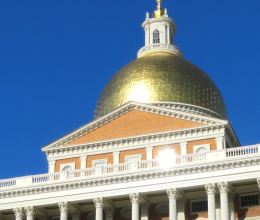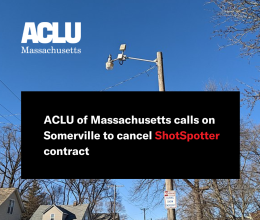
In a local case raising questions similar to those in FBI v. Apple, the American Civil Liberties Union of Massachusetts today filed a motion in federal court in Boston to make public basic information about a case suspected to involve a government attempt to use the All Writs Act of 1789 to compel Apple to unlock an encrypted device in Massachusetts.
"Transparency is more important than ever now that the government has dropped its request to force Apple to access data on a locked iPhone in the San Bernardino case," said Jessie Rossman, staff attorney with the ACLU of Massachusetts. "The FBI would have us believe that their recent attempt was exceptional, but it was not. Research conducted by the ACLU of Massachusetts and the national ACLU revealed yesterday more than 60 cases in which the government invoked the All Writs Act to attempt to conscript Apple or Google to break into personal electronic devices. Going back as far as 2008, these requests span more than 20 states."
In the cases the ACLU identified, many of the individual documents--including All Writs Act applications and orders--are sealed, but the existence of these documents is almost universally made public. In contrast, a government affidavit filed in a Massachusetts case references a request to compel Apple to unlock an iPhone, but the public case docket contains no other entries associated with such a request, not even an All Writs Act application or an order. The absence of these entries suggests that there may be a sealed docket sheet listing these items. Making any such sealed dockets public--or divulging that they do not exist--would reveal whether the government filed a formal All Writs Act application against Apple, whether the company opposed it, and whether the Court granted it.
"We are taking this action in order to better understand how government authorities have attempted to use the All Writs Act of 1789 to defeat 21st-century technology," said Matthew Segal, legal director of the ACLU of Massachusetts. "We hope this case will inform the ongoing public debate about digital security taking place in Massachusetts and across the country."
"Hundreds of millions of ordinary people worldwide rely on secure technology every day for business transactions and personal communication. Our national debate over this critical issue must take place in full public view," said Carol Rose, ACLU of Massachusetts executive director.
Support our work for transparency
Click here for details about the All Writs Act cases revealed by the ACLU.
Matthew Segal in Slate: Lessons From the Government’s 63 Prior Attempts to Make Tech Companies Unlock Devices
Click here for details about the ACLU of Massachusetts motion to unseal.






